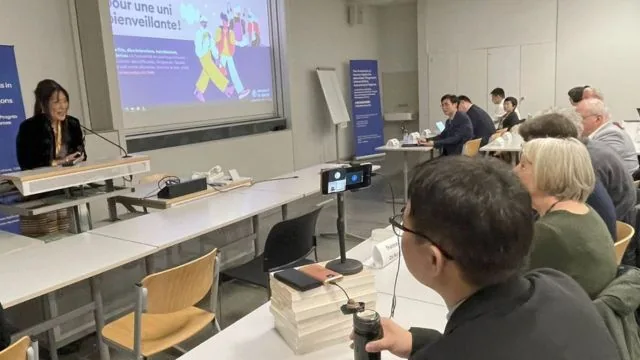
A seminar organized by the China Society for Human Rights Studies (CSHRS) on March 18, 2024, during the 55th session of the UN Human Rights Council in Geneva, faced criticism for portraying Tibet and Xinjiang as exemplars of human rights under Chinese rule. According to a report by Bitter Winter, the event, held at the University of Geneva, featured Chinese researchers and some Western supporters who painted a positive picture of life in these regions.
The seminar, titled “The Protection of Human Rights for Minorities: Progress in China’s Ethnic Autonomous Regions,” claimed significant advancements in the rights and autonomy of Tibet, referred to as Xizang, and Xinjiang, thanks to the governance of the Chinese Communist Party (CCP). Bitter Winter reported that the speakers dismissed accusations of human rights abuses as the result of external interference.
Critics, however, have labeled the seminar as misleading, pointing out that it glossed over well-documented issues of religious repression, cultural erasure, and forced labor. Speakers at the seminar, including a researcher from the China Tibetology Research Center and an executive director from the China Institutes of Contemporary International Relations, were accused of spreading propaganda.
ALSO READ: Police Clash with Tibetan Activists Protesting Wang Yi’s Visit to Australia
Additionally, a “Belgian Tibetologist,” who is actually a retired high school teacher known for supporting Chinese narratives on Tibet, and a Swiss-Tibetan musician, were among those presenting at the seminar. Their claims, particularly regarding the empowerment of Tibetan children in boarding schools, have been met with skepticism and are at odds with United Nations condemnations of such practices.
Bitter Winter highlighted the seminar’s selective presentation of data, such as a survey claiming Tibetan students and their parents approve of boarding schools, which critics have compared to discredited practices of reporting satisfaction in autocratic regimes.
The seminar has been criticized for its one-sided portrayal of the situation in Tibet and Xinjiang, ignoring substantial evidence of human rights violations. The event and its coverage have sparked a debate about the role of academic institutions and the media in disseminating information about contentious regions.






